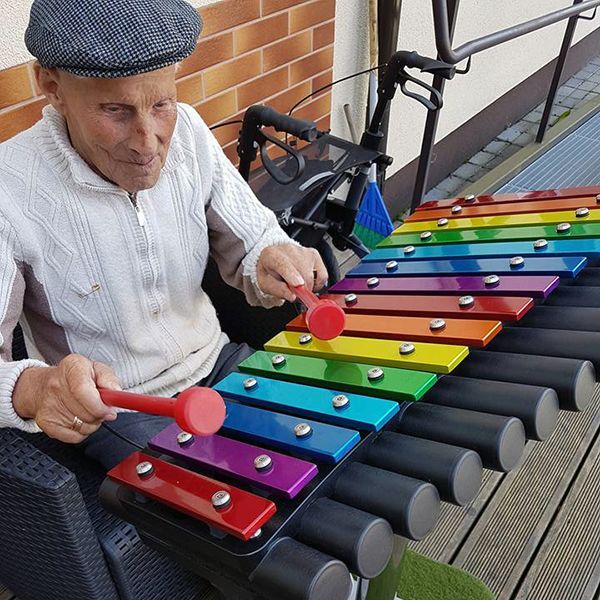
Let's Jam
Simply enter your name, email address, and click subscribe to get the latest product updates.
By clicking "Subscribe", you confirm that you have read and accepted our Terms and Conditions, Privacy Policy and Cookie Policy.
Post-Traumatic Stress Disorder (PTSD) is a complex mental health condition that can affect anyone who has experienced or been exposed to a traumatic event. These events may include abuse, combat, natural disasters, or serious illness. PTSD can develop shortly after the trauma or emerge months—or even years—later, with symptoms that vary in intensity and duration.
Despite the availability of effective treatments, many individuals living with PTSD do not receive the support they need. Raising awareness about PTSD and the diverse therapeutic options available is essential to helping more people find a path to healing.
Among the many therapeutic approaches used to treat PTSD, music therapy has shown remarkable promise. Unlike traditional talk therapies, music can reach parts of the brain associated with emotion, memory, and sensory processing—often bypassing verbal barriers and offering a safe, creative outlet for expression.
Our white paper, Music as Medicine: Combating PTSD with Music & Music Therapy explores how engaging with music—whether through listening, playing, or composing—can help individuals process trauma, regulate emotions, and reconnect with themselves and others.
Understanding PTSD and the range of treatment options available is the first step toward recovery. Music therapy is not a replacement for clinical care, but it can be a powerful complement, especially for those who struggle to articulate their experiences through words alone.
By sharing research and real-world applications, we hope to inspire more communities, caregivers, and individuals to consider music's healing potential.
Our collection of white papers is designed to inform and inspire. Each one is grounded in research and real-world insights, offering guidance on how music and inclusive outdoor musical play can support mental health, learning, and community well-being.
👉 Download Music as Medicine: Combating PTSD with Music & Music Therapy
👉 Explore all our White Papers